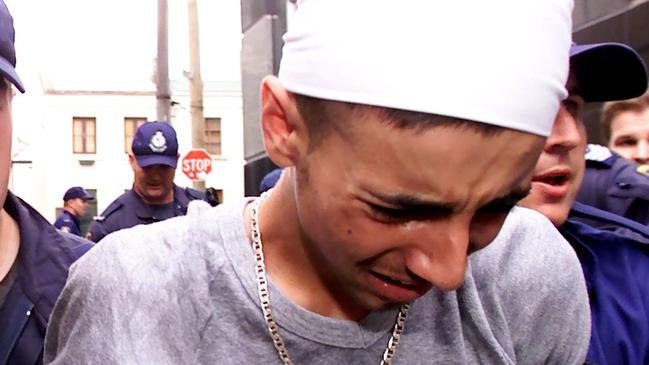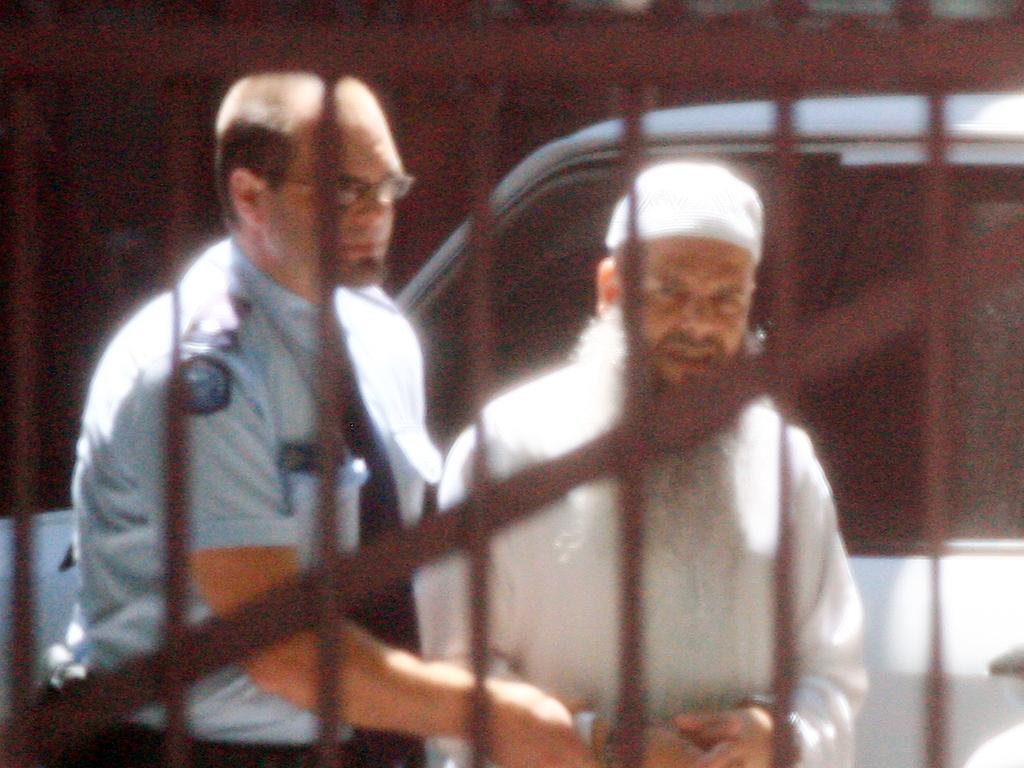Suspected Islamic State terrorist Delil Alexa has Australian citizenship returned
High Court decision effectively opens legal door for up to 20 more convicted or suspected IS fighters.

A suspected Australian ISIS terrorist who was stripped of his Australian citizenship has had it effectively reinstated by the High Court, a decision that opens the door for up to 20 other convicted or suspected ISIS fighters to have their citizenship returned.
Delil Alexander – a dual Australian-Turkish citizen – won his appeal against a decision by then home affairs minister Karen Andrews last year to strip him of his citizenship after ASIO assessed that he was a member of ISIS with close ties to several notorious terrorist leaders.
On Wednesday the High Court struck down as unconstitutional the legislation on which at least two ISIS members have had their Australian citizenship cancelled, a decision which will have far-reaching implications for security agencies.
A majority of the High Court held that s.36B of the Citizenship Act was invalid on the basis that it gave the Home Affairs Minister the exclusively judicial function of judging and punishing criminal guilt.
A Department of Home Affairs spokesman said the department was “considering the implications of the judgment” but declined to comment on the broader implications of the High Court’s finding, which may apply in principle to many other Australian citizens suspected of or convicted of terrorist offences who have had their citizenship revoked.
Federal Attorney-General Mark Dreyfus, who had opposed the laws in opposition, said there was “no threat to Australia as a result of today’s decision”, citing other potential powers to exclude citizens suspected of offences from Australia including the Temporary Exclusion Order regimen which can prohibit an individual returning to Australia for up to two years.
Alexander, who was born in Australia to Turkish parents, left Australia in 2013 at the age of 26, ostensibly to travel to Turkey. But two weeks later he was married in Idlib, Syria.
By the time he made his way to the ISIS stronghold of Raqqa, ISIS had been listed as a terrorist organisation.
In 2021, ASIO assessed that Alexander had joined ISIS by August 2013, his travel to Syria facilitated through a Sydney-based network developed by convicted terrorist Hamdi Al Qudsi.
ASIO said the 35-year-old was a “close associate” of Mohammed Ali Baryalei, the most senior Australian leader of ISIS and ringleader of a plot to execute a random Australian by beheading.
Alexander’s enlistment in ISIS was discussed by Al Qudsi and Baryalei in an intercepted phone call, according to ASIO.
“He travelled to Syria to join Islamic State, did so, and then entered an area of Syria that Islamic State controlled as a member of Islamic State. He did not stumble unwittingly into al-Raqqa Province,” counsel for the minister earlier told the High Court.
ASIO has stated that although ISIS was defeated in Syria, “attempts by some terrorist fighters to return to Australia (remain) a matter of the gravest security concern”.
In November 2017 Alexander was arrested by Kurdish militia in Syria.
His lawyers said the court should infer he was tortured and forced to sign a document without reading it.
He was then handed over to Syrian custody, convicted of unspecified offences and sentenced to 15 years imprisonment, later reduced to five years.
In June last year, Alexander was transferred to the notorious Branch 235 prison in Damascus, a torture centre operated by Syrian intelligence.
ASIO furnished a classified Qualified Security Assessment to the Ms Andrews, who determined that Alexander “ceased to be an Australian citizen”.
His family have not been able to contact him since his transfer to Branch 235, so the case was brought on his behalf by his sister Berivan.
The family believes that if he is an Australian citizen it will improve his chances of being released.
Lawyers for his sister maintain there is no evidence he was a foreign fighter or undertook any terrorist training.
The family sought to overturn the ruling on several grounds but the key question was whether s36B of the Citizenship Act – under which Alexander lost his citizenship – is constitutionally valid, in particular whether it is within the scope of “the aliens power”.
The law was introduced in 2015 and amended in 2020 allowing Australians with dual citizenship to be stripped of their Australian citizenship if the Minister for Home Affairs concludes that they have repudiated their allegiance to Australia.
The minister must be satisfied they have another citizenship, and that citizenship stripping would not make them stateless.
This was the first time the High Court has considered whether the laws are valid.
Alexander’s lawyers argued that citizenship stripping is punitive in character, and therefore unconstitutional unless it is based on a criminal conviction by a court.
In this case, Alexander was convicted by a Syrian court of terrorist offences, but his family said the confession was obtained under torture.
The High Court examined whether the citizenship stripping law in s36B was within the scope of the “aliens power” of the Constitution, in this case whether an Australian-born citizen could be treated as an alien, at the minister’s discretion, by virtue of their conduct.
By a majority the court found that s36B was within the scope of the aliens power, but that it was invalid on the basis that “it reposed in the minister the exclusively judicial function of adjudging and punishing criminal guilt”.
Berivan Alexander, through her lawyer, Osman Samin, said she was delighted by the verdict.
“The legislation essentially enabled the minister to set up their own parallel system of criminal justice and punishment entirely outside the courts in which they could impose the ultimate sentence – that being banishment,” he said.
“While our client’s family is extremely relieved, it has been almost an entire year since anyone from the outside world has had contact with Mr Alexander.
“Understandably, Mr Alexander’s family are anxious to know his fate.”
Mr Samin said he had written to the Home Affairs Minister asking for consular assistance to be provided to Alexander so that he could return home.
“It is now incumbent upon the Prime Minister and the Foreign Minister to urgently contact their Syrian counterparts and arrange Mr Alexander’s immediate return to Australia,” Mr Samin said.
Many constitutional lawyers had questioned whether the law would survive a High Court challenge.
One of those, UNSW constitutional law expert George Williams, said the judgment was not surprising.
“To be frank, it never should have been enacted in this form, it was always highly problematic,” Mr Williams said.
“The High Court’s decision is welcome in identifying that when it comes to punishment or judging guilt, it’s important that that is conducted by independent judges, free of the political process, and this was an instance where that was not done.
“There were always real doubts about whether citizenship stripping was needed or effective in the first place.
“One is because there are many other measures that can be applied.
There are temporary exclusion orders, there are control orders that can monitor a person, there’s a wide range of actions that can be put into place and if someone crosses a line, they can be prosecuted and jailed – and they can be kept in jail after their time.”





To join the conversation, please log in. Don't have an account? Register
Join the conversation, you are commenting as Logout